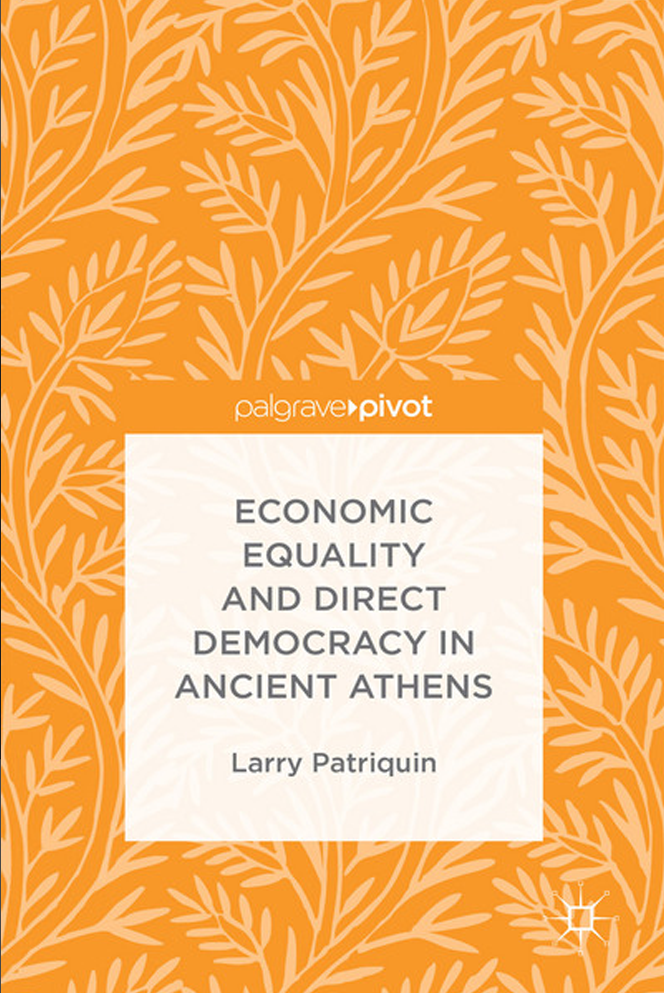New York: Palgrave Macmillan, 2015. 100 pp.

This book argues against mainstream views, which tend to find an inexplicable paradox between ancient Athens’ extraordinary politics, on the one hand, and its apparent economic inequality, on the other hand. In contrast, the author suggests that in the period c.594-323 B.C., many Athenian males gained control of means of production, in particular land, which enabled these relatively independent men to successfully challenge their exclusion from politics.
It is generally agreed that Athens produced the most radical form of democracy in the history of humanity. What is often overlooked, however, is that its radical nature was rooted in an equally radical version of economic parity. The book concludes by suggesting that the key lesson we “moderns” can take from Athens is that some form of economic democracy is a necessary prerequisite for political democracy.

The book is an extremely valuable addition to the social science literature on democracy and will be appreciated by scholars in political economy, political science, and sociology as well as ancient history. The argument regarding the nexus between the distribution of political and economic power is well presented and convincing. …[Patriquin] has offered a book whose arguments will fascinate and intrigue the scholar and the uninitiated alike.
George Tridimas
The Classical Review

This book offers a most useful and an original contribution to the field – the field being the very broad one of the interrelationship between “ancient (Greek)” and “modern” democracy, and the possible benefits for modern of studying ancient. It both engages with and takes forward the modern scholarly discussion, principally by redefining and refining the nature of “equality” in the economic as opposed to the political sphere of ancient Athenian democracy.
Paul Cartledge
A.G. Leventis Senior Research Fellow
Clare College, University of Cambridge